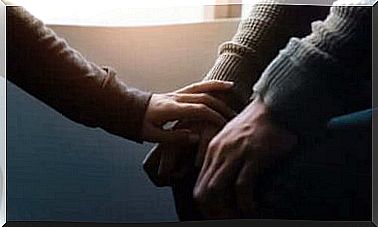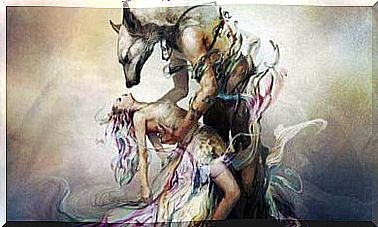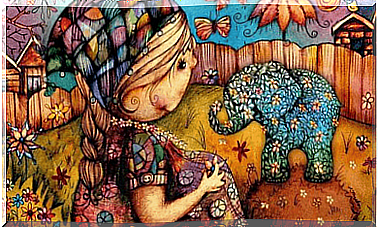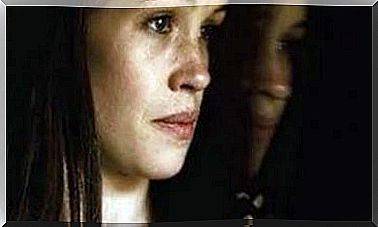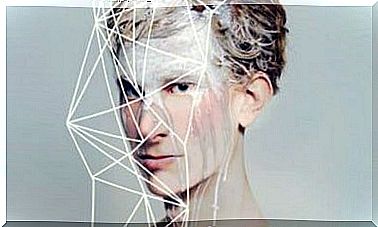Emotional Consequences Of Stroke
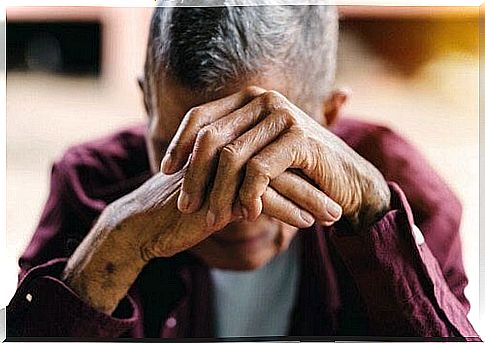
A moderate to severe degree of physical disability can be experienced following a brain accident, better known as a stroke. Still, this condition can cause additional consequences that we often tend to overlook. In the following lines we will talk about the emotional as well as behavioral consequences of stroke.
Neurorehabilitation following a cerebrovascular accident focuses more on the recovery of motor skills, such as hemiplegia, walking difficulties, aphasia, cognitive impairment, etc. These consequences are the most common of a wide variety and require great attention.
The truth, however, is that if the emotional consequences of stroke are not also addressed, physical rehabilitation may not have the desired effects.
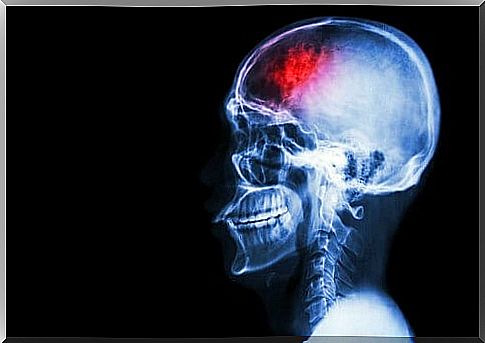
What is a stroke? Some data we should know
A stroke is a sudden abnormal blood flow in the brain that causes physical and mental symptoms that may last over time.
It affects around 130,000 people a year, of which over 300,000 will experience functional limitations. It is, therefore, a condition with a high incidence, which is increasing. Despite this, it is good to know that 90% of strokes can be prevented.
In Italy it is the third cause of death of the population, as well as the first cause of death among women. It is also the first cause of adult invalidity; 35% of cases occur in working age, which means that it is not a problem that affects only the elderly.
Among the possible consequences – some of which are very serious – the person recovered from a stroke may manifest a psychopathology due to the loss of some functional abilities. The emotional and behavioral consequences of a cerebrovascular accident can be even more disabling than the physical ones.
The emotional consequences of stroke
- Pathological emotionality or laughter and pathological crying : reactions of crying or laughter disproportionate to the stimuli.
- Emotional incontinence: closely associated with the previous one, the person is unable to regulate and express emotions. Emotional manifestations may be disproportionate or inappropriate in terms of frequency, intensity, duration and context.
- Post-stroke fatigue : intense tiredness following minimal mental or physical exertion. It can be accompanied by a subjective feeling of fatigue and difficulty in starting an activity that requires minimal effort.
- Catastrophic Reaction: May or may not be accompanied by other symptoms associated with depression.
- Apathy: loss of interest and pleasure in almost everything.
- Anosognosia: absence of awareness of the disease. The most interesting aspect is the emotional indifference that accompanies the disability.
- Irritability and aggression: these are among the most common manifestations. Aggression can be verbal or physical towards objects or people.
- Anxiety or depression: These symptoms are very common due to brain damage. A stroke presupposes the loss of skills, functionality, etc … this can lead to anxiety and depression.
The symptoms described above vary greatly from person to person and can be difficult to recognize and make a correct diagnosis. However, several resources should be invested in order to recognize the situation and take appropriate action.
Behavioral disturbances following a stroke
- Changes in social behavior: This is the main disturbance and may involve others. People close to the patient generally report that their loved one “is no longer the same person”, that their personality has changed, as well as their character, the way they treat others, etc.
- Childhood behaviors: or the tendency to act in an immature, irresponsible and naive way.
- Inflexibility: The inability to make changes to established schedules is due to a reduction in working memory.
- Egocentrism: it is very common in the subject who has suffered a cerebrovascular accident and makes it impossible to identify with others. Adaptive behavior presupposes understanding the perspectives of others. This skill is known as the theory of mind.
The lack or deterioration of cognitive skills can make us unable to understand those around us and insensitive to the needs of others, which greatly complicates social relationships.

Acting on the emotional consequences of stroke
Certain emotional and behavioral disturbances are natural reactions following a stroke, but they can hinder the patient’s rehabilitation. A good predisposition and the right motivation are essential so that the person can notice improvements in the shortest possible time.
In conjunction with neurorehabilitation and neuropsychological rehabilitation, patients and their families should receive psychological support to adequately manage these disorders. It is equally important to understand the state of mind of the family and caregivers.
Caring for a non-autonomous person is a heroic gesture that can very often have a negative impact on the psychological well-being of the caregiver. This triggers a vicious circle in which the malaise of the first causes the malaise of the second. Taking care of yourself is the only way to offer valuable help.


